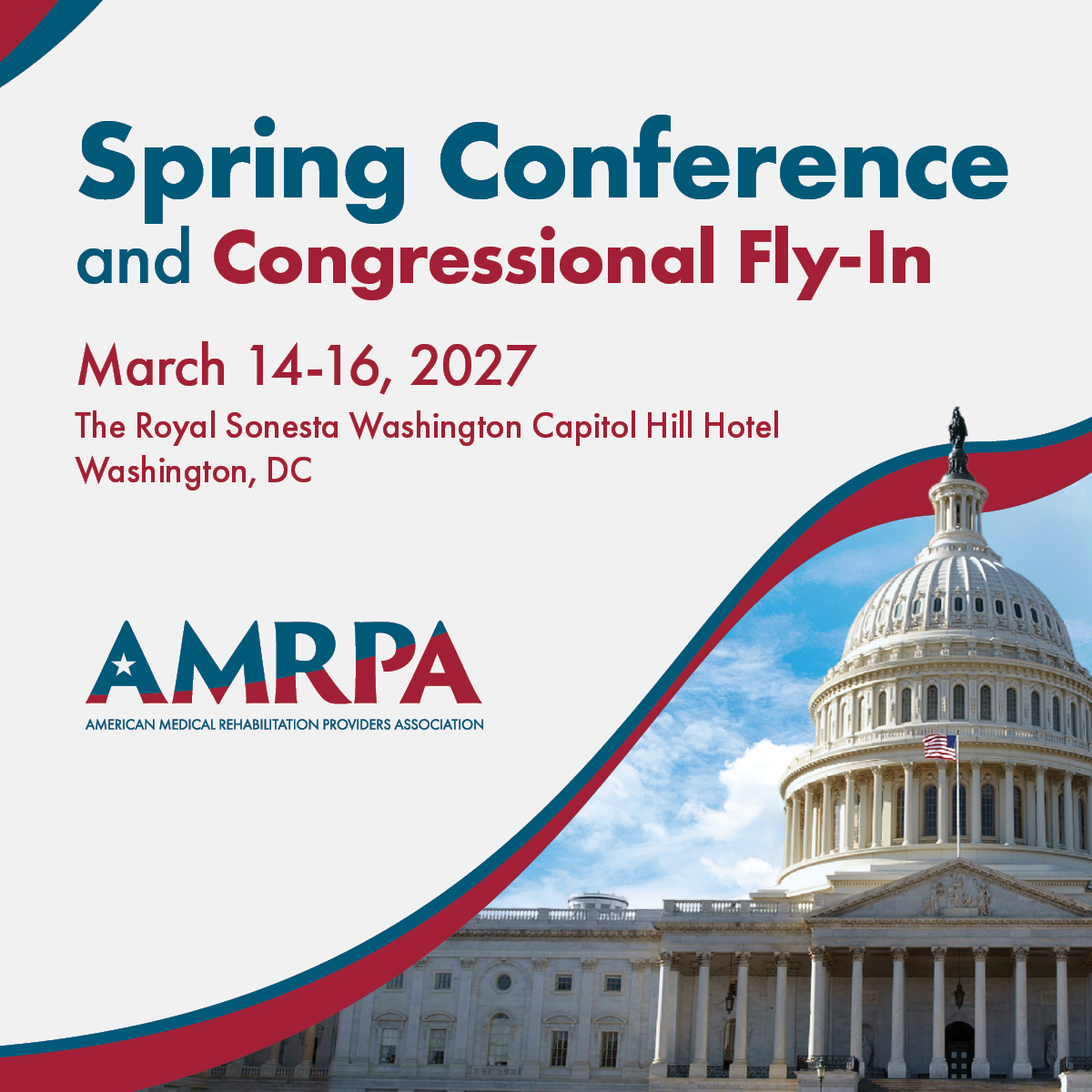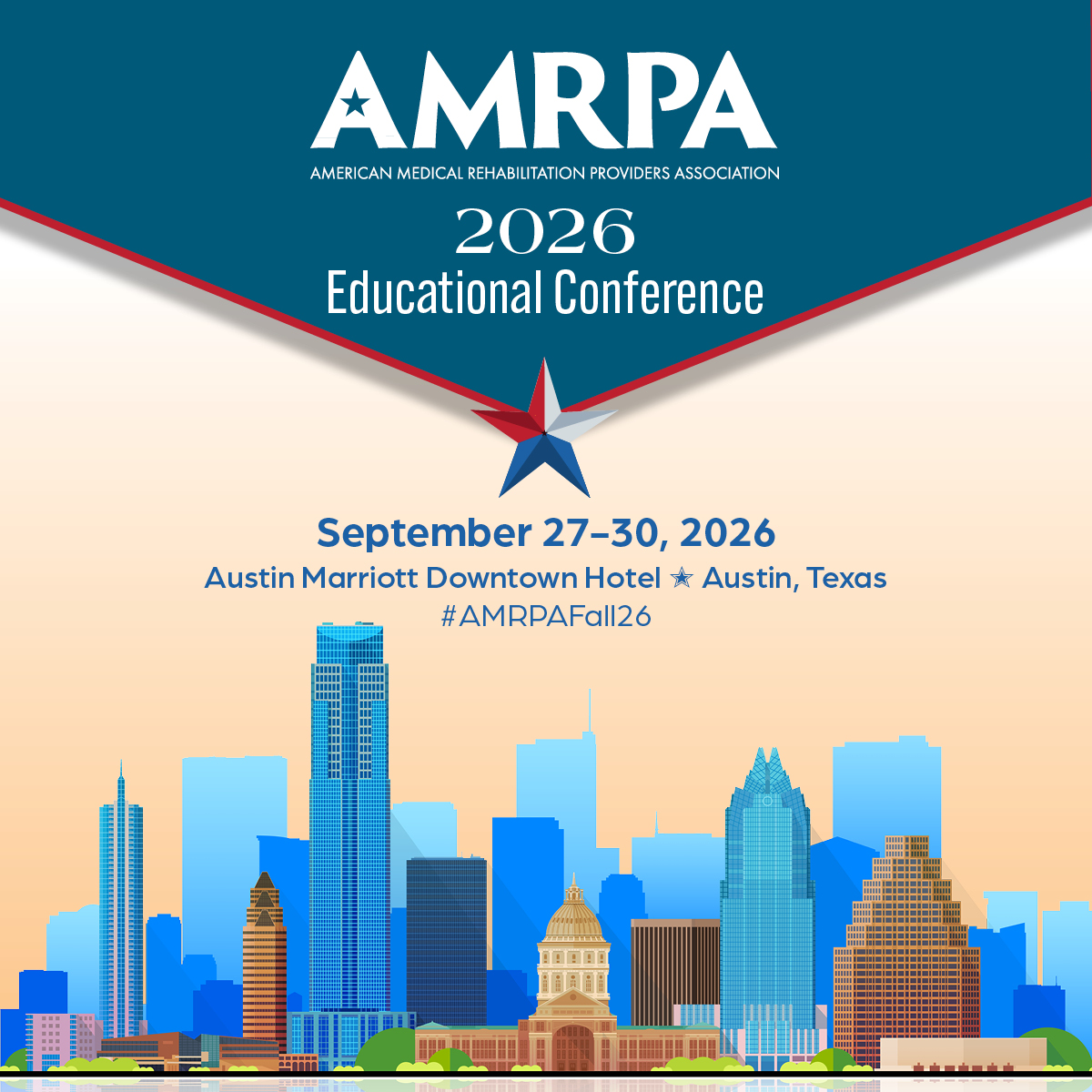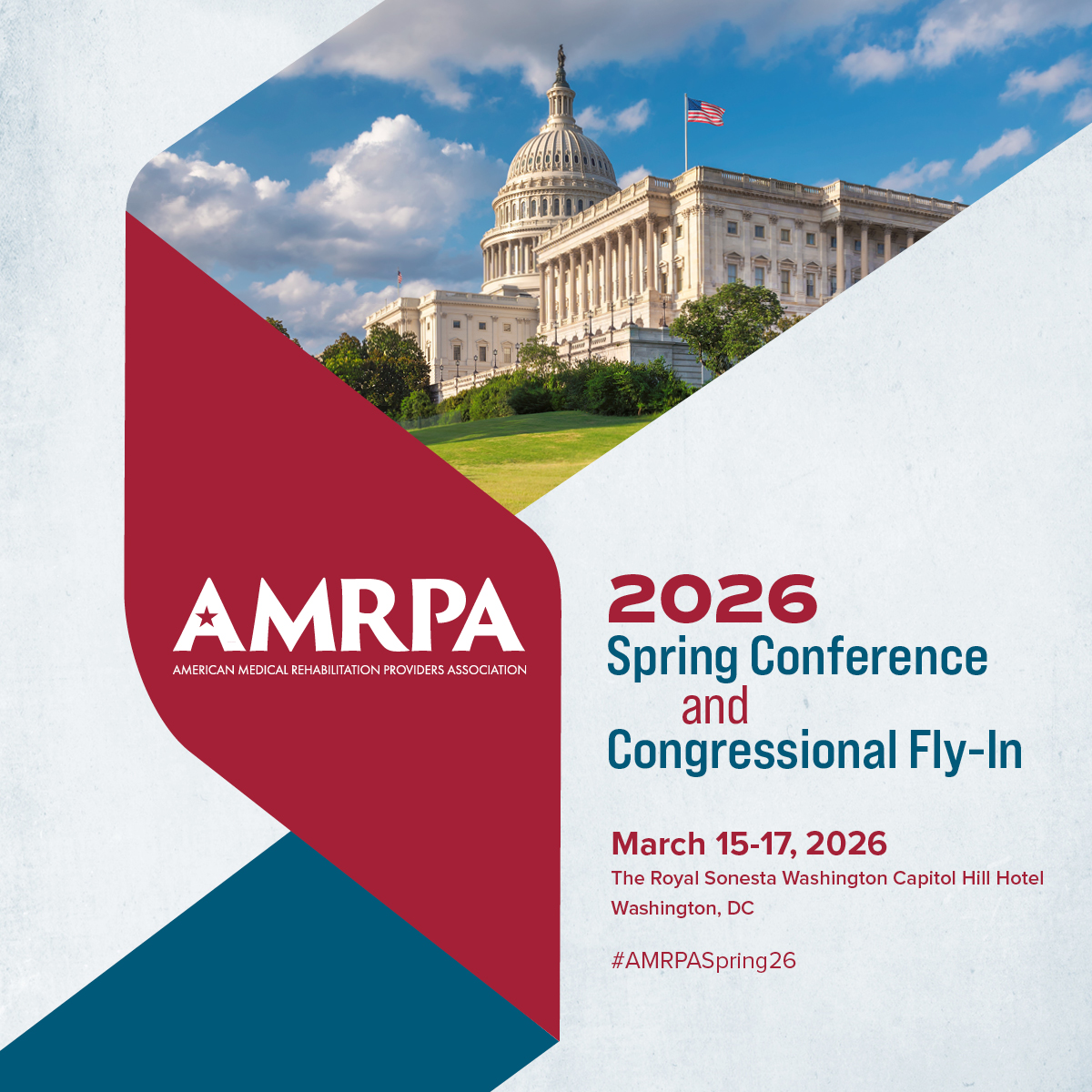Medicare Payment & Quality Resources

AMRPA’s policy and advocacy agenda involves a wide range of priorities focused on ensuring robust coverage of and access to inpatient rehabilitation care. Below, AMRPA members can find information and resources on key policy issues and federal entities involved in inpatient rehabilitation. If you have questions regarding any of the information below, please contact AMRPA staff.
Advocacy Quick Links
Inpatient Rehabilitation Facility Prospective Payment System (IRF PPS)
The Centers for Medicare and Medicaid Services (CMS) provides payment for inpatient rehabilitation hospitals and units under a unique payment system for IRFs, separate from the standard acute care Inpatient Prospective Payment System. In order to become excluded from the IPPS and categorized as an IRF, a freestanding rehabilitation hospital or rehabilitation unit of an acute care hospital must meet all the criteria specified in 42 C.F.R. 412.29.
In particular, to be classified as an IRF for Medicare payment purposes, at least 60% of a facility’s total (all payers, not limited to Medicare Fee-for-Service) inpatient population must have one or more of 13 conditions listed in 42 C.F.R. 412.29(b)(2) (this is known as the “60% Rule.”) Additionally, all Medicare Fee-for-Service patients admitted to an IRF must meet all of the Medicare IRF coverage criteria, specified in 42 C.F.R. 412.622(a)(3).
For more information on the IRF payment, coverage, and classification criteria, please use the following resources:
- CMS Inpatient Rehabilitation Facility PPS Homepage
- CMS IRF Coverage Requirements
- CMS Specifications for Determining IRF “60% Rule” Compliance
CMS annually updates the IRF PPS rates and other payment and coverage policies through the federal rulemaking process.
The Fiscal Year (FY) 2026 IRF PPS final rule went into effect on Oct. 1, 2025. Resources on the final rule can be found below:
- AMRPA Summary of the FY 2026 IRF PPS Final Rule
- FY 2026 IRF PPS Final Rule Text (published Aug. 5, 2025)
- FY 2026 IRF PPS Final Rule Associated Files (available for download)
- These files include detailed information on the final IRF wage index tables; rate setting files for each Medicare-certified IRF; final Case-Mix Groups, Relative Weights, and Average Lengths of Stay; and more.
- CMS Fact Sheet on the FY 2026 IRF PPS Final Rule
- AMRPA’s Comments on the FY 2026 IRF PPS Proposed Rule (submitted June 4, 2025)
Inpatient Rehabilitation Facility Quality Reporting Program (QRP)
Since 2012, IRFs have reported certain quality measures to the Centers for Medicare and Medicaid Services (CMS) under the Inpatient Rehabilitation Facility Quality Reporting Program (IRF QRP). IRFs must submit IRF QRP data in order to receive full payment from Medicare under the IRF Prospective Payment System (PPS).
For more information on the IRF QRP, please use the following resources:
- CMS IRF Quality Reporting Program Homepage
- CMS IRF QRP Spotlight & Announcements
- CMS IRF QRP Measures Information
- CMS IRF QRP Data Submission Deadlines
- CMS IRF QRP Frequently Asked Questions (FAQs)
IRF QRP Non-Compliance Penalties and Reconsideration Options
If IRFs fail to submit complete data under the IRF QRP, they may be subject to a penalty of up to 2% of their total Medicare reimbursement. Each year (typically in early July), CMS will send notifications of IRF QRP non-compliance to IRFs who have been identified to receive a 2% reduction in their Annual Increase Factor for failure to meet quality reporting requirements. AMRPA is committed to assisting member hospitals in pursuing reconsideration of these penalties. For more information on the IRF QRP penalties and reconsideration process, please use the following resources or contact AMRPA staff with any questions.
AMRPA/FAIR Fund Webinar: IRF QRP Non-Compliance Penalties & Reconsideration Options
- AMRPA and the FAIR Fund hosted an interactive webinar regarding IRF Quality Reporting Program (QRP) penalty process and the opportunities available to IRFs to identify non-compliance and potentially avoid the 2% penalty through the reconsideration and appeals process. The webinar provided education about the IRF QRP program and penalty structure for failure to submit quality measure data. For members who missed the webinar, the recording and slide deck can be accessed below. (Note: This webinar was recorded ahead of the imposition of FY 2024 penalties; however, the process remains the same and we encourage members to review the webinar for an overview of this process and opportunities for reconsideration.)
- Members: Log in to download the webinar slides and recording.
AMRPA/FAIR Fund Resource:
- Members: Log in to download the template letter and instructions.
Partnership for Quality Measurement (PQM)
The PQM was established in 2023 by Battelle, which is a Centers for Medicare & Medicaid Services (CMS) certified “consensus-based entity.” Battelle’s PQM uses a consensus-based process involving a variety of experts – clinicians, patients, measure experts, and health information technology specialists – to ensure informed and thoughtful endorsement reviews of qualified measures. PQM’s transparent, streamlined approach to consensus-building can be applied widely in the quality improvement field, including reviews for alternative payment models, clinical decision support, and quality improvement tools.
For more information on the PQM, visit the PQM Website and Upcoming Events.
PQM has two processes and associated committees that evaluate measures for utilization in the IRF Quality Reporting Program (QRP):
Pre-Rulemaking Measure Review (PRMR)
The PRMR process is conducted yearly to provide recommendations to CMS on the selection of quality and efficiency measures under consideration for use by CMS, as required under Section 3014 of the Affordable Care Act.
Measure Set Review (MSR)
- The MSR process is statutorily enabled by the Consolidated Appropriations Act, 2021. PQM conducts the MSR annually to provide recommendations on the continued use of quality and efficiency measures in CMS programs.
- PQM MSR Website
- PQM MSR Recommendation Group
- PQM MSR Resources
For any questions regarding the PQM or the IRF QRP measure selection and refinement process, please contact AMRPA staff.
Inpatient Rehabilitation Facility Patient Assessment Instrument (IRF-PAI)
The Inpatient Rehabilitation Facility Patient Assessment Instrument (IRF-PAI) is the assessment instrument IRF providers use to collect patient assessment data for quality measure calculation and payment determination in accordance with the IRF Prospective Payment System (PPS) and Quality Reporting Program (QRP). Completion of the IRF-PAI is required for each Medicare Part A fee-for-service and Medicare Part C patient discharged from an IRF. Beginning October 1, 2024, completion of the IRF-PAI will be required for all patients, regardless of payer.
For most recent IRF-PAI Versions and Draft IRF-PAI items:
- IRF-PAI-Version-4.2-Effective-10-01-24
- IRF-PAI-Version-4.0-Effective-10-01-22
- Draft-PAC-SDOH-items-IRF
IRF-PAI Manual
The purpose of the IRF-PAI Manual is to offer continuing guidance to IRFs regarding collection, submission, and reporting of assessment data. The IRF-PAI Manual offers item-by-item coding instructions and coding examples for each item to assist IRF staff to accurately complete the IRF-PAI.
- CMS-IRF-PAI-Manual-Version-4.2 – Effective October 1, 2024
- CMS IRF-PAI Manual Version 4.0 Errata – Effective October 1, 2022
- CMS-IRF-PAI-Manual-Version-4.0 – Effective October 1, 2022
IRF-PAI Quarterly Q&As
CMS publishes the IRF-PAI Quarterly Q&As, where CMS identifies the opportunity to clarify or refine guidance based upon inquiries to the IRF Post-Acute Care (PAC) Quality Reporting Program (QRP) Help Desk. Each quarterly document contains consolidated Q&As, beginning in June 2020, so that all IRF providers have the benefit of clarifications to existing guidance.
Medicare Payment Advisory Commission (MedPAC)
The Medicare Payment Advisory Commission (MedPAC) is a non-partisan, legislative branch agency that provides Congress with analysis and policy advice on the Medicare program. MedPAC conducts seven public meetings each year (their “cycle” runs from September to April), and AMRPA staff attend sessions where the discussion and recommendations may impact post-acute care and the IRF field in particular. AMRPA provides important member updates on MedPAC’s activities and reports through our weekly Off the Record updates and Medical Rehab Monthly newsletter.
For more information about MedPAC’s work, please visit the MedPAC website.
Read AMRPA’s recent engagement and comments to MedPAC.





